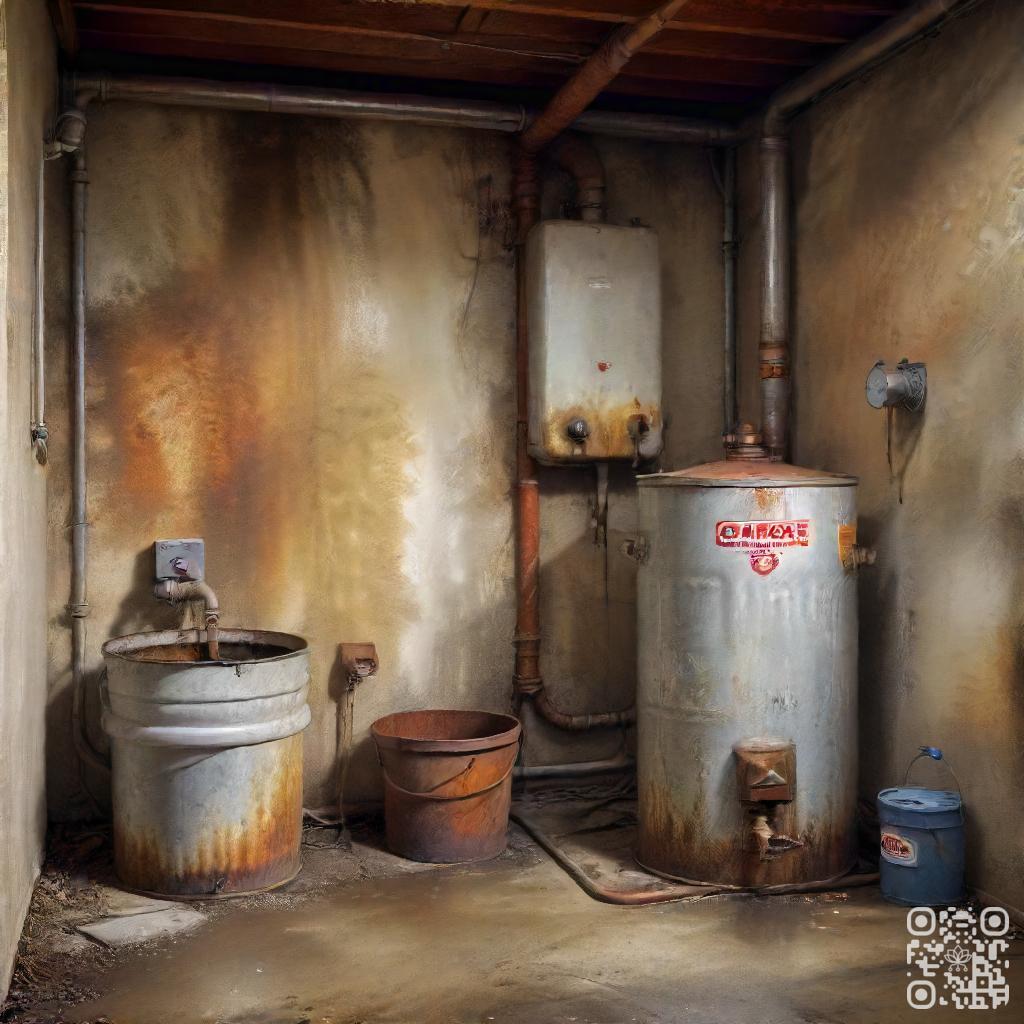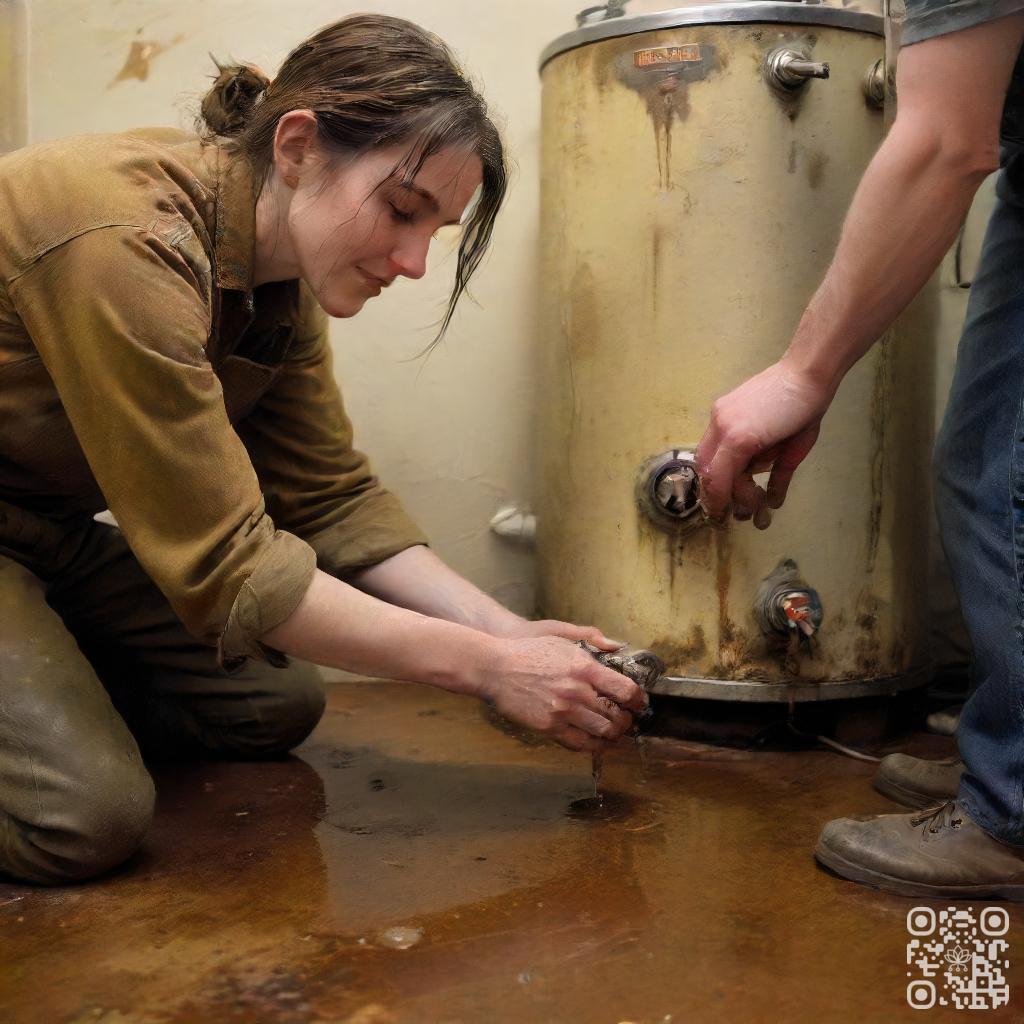
II. Buyers are often wary of purchasing a water heater that has a history of leaks, as they can lead to costly repairs and potential water damage.
III. Regular maintenance and prompt repairs can help mitigate the risk of leaks and preserve the resale value of a water heater.
Leaks in water heaters can have a significant impact on their resale value. Not only do leaks indicate potential damage and the need for repairs, but they also raise concerns about the overall condition and reliability of the water heater.
Potential buyers may be hesitant to purchase a water heater with a history of leaks, as they may fear future issues and costly repairs. It is important for homeowners to address leaks promptly and ensure their water heater is in good working condition to maintain its resale value.
Causes of Water Heater Leaks
Water heater leaks can be caused by various factors. Discerning these causes can help you identify and address the issue promptly. Below are the common reasons for water heater leaks:
1. Age of the water heater
The age of the water heater is one of the primary factors that can contribute to leaks. Over time, the tank can deteriorate, leading to cracks or weakened areas. Older water heaters are more prone to leaks and should be monitored closely.
2. Corrosion and rust
Corrosion and rust can occur within the water heater tank, especially if the tank is made of metal. When the tank corrodes, it can develop small holes or weak spots, causing water to leak. Regular maintenance and inspections can help prevent or detect corrosion early.
3. High water pressure
Excessively high water pressure can put strain on the water heater, leading to leaks. The increased pressure can cause fittings or valves to fail, resulting in water leakage. Installing a pressure-reducing valve can help regulate the water pressure and prevent potential leaks.
4. Improper installation
Improper installation of the water heater can also contribute to leaks. If the connections, pipes, or valves are not properly secured or sealed, water can escape and cause leaks. It is essential to hire a professional plumber to ensure correct installation and minimize the risk of leaks.
| Cause | Potential Solutions |
|---|---|
| Age of the water heater | Monitor older water heaters closely and consider replacing them when necessary. |
| Corrosion and rust | Regular maintenance and inspections to detect and address corrosion early. Consider using a sacrificial anode rod. |
| High water pressure | Install a pressure-reducing valve to regulate water pressure and prevent strain on the water heater. |
| Improper installation | Hire a professional plumber for proper installation and ensure all connections are secure and sealed. |
Remember to regularly check your water heater for any signs of leaks or damage and promptly address any issues to avoid potential water damage to your home.
Signs of Water Heater Leaks
1. Water pooling around the base of the water heater
One of the clear signs that your water heater may be leaking is if you notice water pooling around the base of the unit. This is a clear indication that there is a problem with the water heater and it needs to be addressed immediately. Ignoring this issue can lead to further damage and potentially costly repairs.
2. Rusty water coming from the faucet
If you turn on your faucet and notice that the water coming out is a rusty color, it could be a sign of a water heater leak. The rust color is a result of the water heater tank corroding, which can happen when there is a leak. Pivotal to have this issue checked out as soon as possible to prevent any further damage to your water heater.
3. Strange noises coming from the water heater
Unusual noises coming from your water heater can also be an indication of a leak. If you hear popping, cracking, or hissing sounds coming from the unit, it could be a sign that there is a leak in the tank. These noises are caused by the water coming into contact with the heating elements, which can happen when there is a leak. Integral to have a professional inspect your water heater if you notice any strange noises.
4. Decreased hot water supply
If you find that your hot water supply is not as plentiful as it used to be, it could be a sign of a water heater leak. A leak in the tank can cause a decrease in the amount of hot water that is available. This can be a frustrating problem, especially if you rely on hot water for daily tasks such as showering or washing dishes. If you are experiencing a decrease in hot water supply, fundamental to have your water heater inspected.
How to Fix Water Heater Leaks
Water heater leaks can be a frustrating and potentially damaging problem. If you notice a leak in your water heater, it’s important to take immediate action to prevent further damage. Follow these steps to fix water heater leaks:
1. Turn off the power and water supply
The first step in fixing a water heater leak is to turn off the power and water supply. This will ensure your safety and prevent any additional water from leaking out. Locate the circuit breaker or fuse box and switch off the power supply to the water heater. Then, find the shut-off valve for the water heater and turn it off.
2. Locate the source of the leak
Once you have turned off the power and water supply, you can begin to locate the source of the leak. Inspect the water heater carefully and look for any signs of water dripping or pooling around the unit. Common areas where leaks occur include the pressure relief valve, the drain valve, or the tank itself.
3. Repair or replace the faulty part
After identifying the source of the leak, you can proceed to repair or replace the faulty part. If the leak is coming from a valve, it may be as simple as tightening a loose connection. Nevertheless, if the tank itself is leaking, it may be necessary to replace the entire unit. Consult a professional if you are unsure how to proceed.
4. Test the water heater
Once you have made the necessary repairs, it’s important to test the water heater to ensure that the leak has been fixed. Turn on the power and water supply and monitor the unit for any signs of leakage. Run hot water from a faucet to check for any remaining issues. If the leak persists, it may be necessary to seek professional assistance.
Fixing water heater leaks is essential to prevent water damage and maintain the efficiency of your water heater. By abiding by these steps and addressing the issue promptly, you can ensure a reliable and leak-free water heater.

Preventing Water Heater Leaks
Water heater leaks can be a major inconvenience and can cause significant damage to your home. By taking proactive measures, you can prevent these leaks and ensure the longevity of your water heater. Here are some steps you can take to prevent water heater leaks:
1. Regular Maintenance and Inspections
Regular maintenance and inspections are essential to identify any potential issues with your water heater before they escalate into leaks. It is recommended to have a professional plumber inspect your water heater annually. They can check for any signs of corrosion, loose connections, or worn-out parts that may lead to leaks. Additionally, they can also ensure that your water heater is functioning efficiently, reducing the risk of leaks.
2. Flushing the Water Heater
Flushing your water heater regularly can help remove sediment buildup, which can contribute to leaks. Over time, minerals and debris can accumulate in the tank, causing corrosion and weakening the structure. By flushing the water heater, you can remove these sediments and prevent potential leaks. It is recommended to flush your water heater at least once a year.
3. Installing a Pressure Reducing Valve
High water pressure can put excessive strain on your water heater, increasing the likelihood of leaks. Installing a pressure reducing valve can help regulate the water pressure entering your water heater, preventing damage and leaks. A professional plumber can assess your water pressure and install a pressure reducing valve if necessary.
4. Replacing the Anode Rod
The anode rod is a crucial component of your water heater that protects it from corrosion. Over time, the anode rod can deteriorate and lose its effectiveness, leaving your water heater vulnerable to leaks. Regularly inspecting and replacing the anode rod can help extend the lifespan of your water heater and prevent leaks.

Impact of Leaks on Water Heater Resale
Pertaining to selling your home, every aspect of it contributes to its overall value. One important factor to consider is the condition of your water heater. Leaks in a water heater can have a significant impact on its resale value and the ability to sell it quickly. Let’s scrutinize the various ways in which leaks can affect the resale of a water heater.
1. Decreased resale value
A leaky water heater can significantly decrease the resale value of your home. Potential buyers may see the leak as a sign of neglect and may be hesitant to invest in a property with a faulty water heater. Integral to address any leaks promptly to maintain the value of your home.
2. Difficulty selling a leaky water heater
Trying to sell a home with a leaky water heater can be quite challenging. Many buyers are looking for move-in ready homes and may be deterred by the need for immediate repairs. The presence of a leak can raise concerns about the overall condition of the water heater and other potential issues in the house.
3. Cost of repairs affecting resale value
Repairing a leaky water heater can be costly, and this expense can directly impact the resale value of your home. Buyers may negotiate a lower price or ask for repair credits to compensate for the cost of fixing the leak. It is essential to factor in the cost of repairs when determining your asking price.
Leaky water heaters can have a significant impact on the resale value of your home. Vital to address any leaks promptly to avoid a decrease in value and potential difficulties in selling your property. By ensuring the water heater is in good condition, you can attract buyers and negotiate a fair price for your home.
| Impact of Leaks on Water Heater Resale |
|---|
| 1. Decreased resale value |
| 2. Difficulty selling a leaky water heater |
| 3. Cost of repairs affecting resale value |
Bottom Line
Leaks in water heaters can have a significant impact on their resale value. Essential to address leaks promptly to prevent further damage and potential safety hazards. Regular maintenance and inspections can help identify and prevent leaks before they occur. If a leak does occur, imperative to have it repaired by a professional to ensure proper functioning of the water heater. Homeowners should also consider the age and condition of their water heater when deciding whether to repair or replace it. Overall, addressing leaks and maintaining a well-functioning water heater can help increase its resale value and ensure a safe and efficient home.
Read More:
1. Water Heater Leaks During Power Outages
2. Leaks And Impact On Smart Water Heaters
















